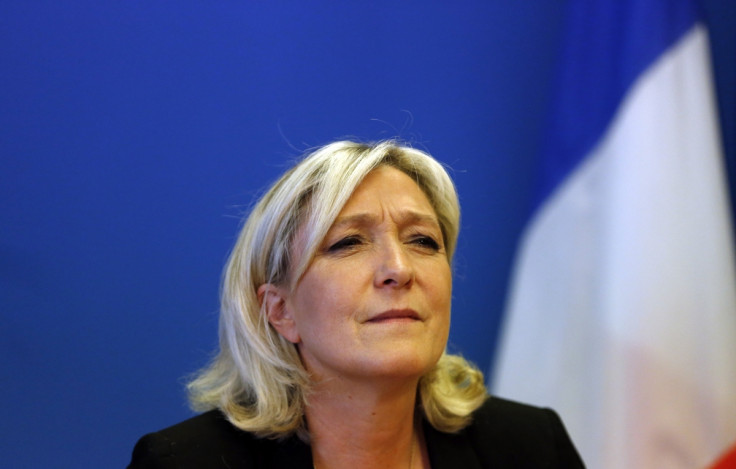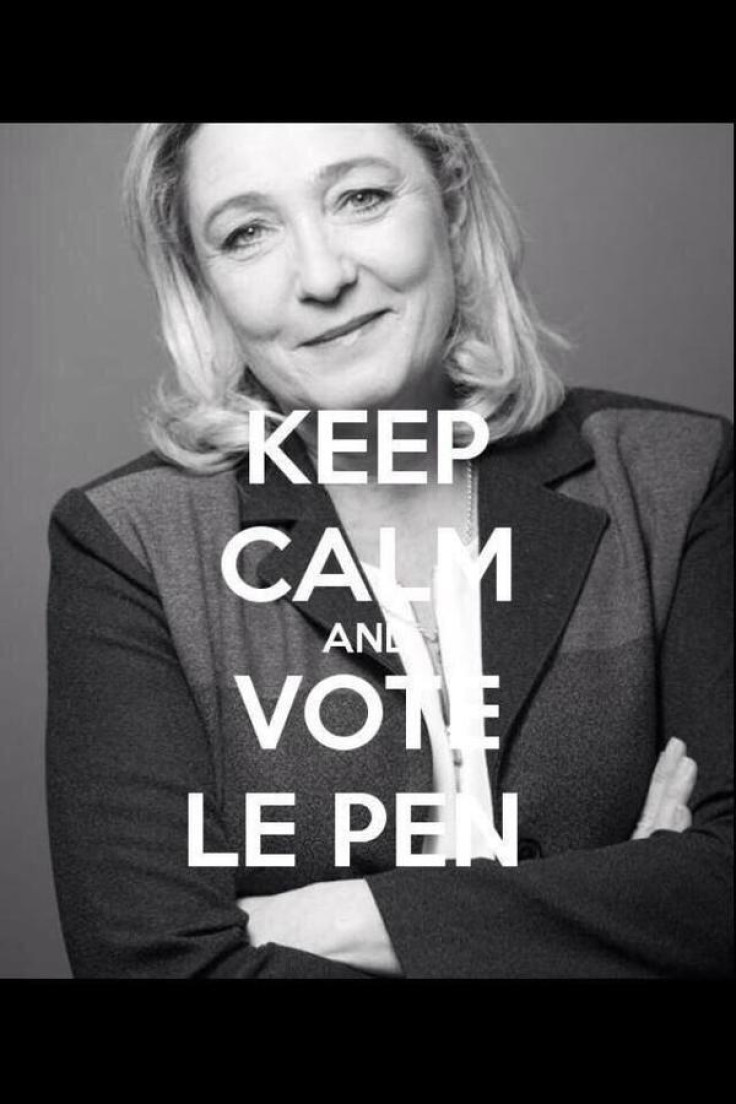Charlie Hebdo Paris massacre: Marine Le Pen and the cynical opportunism of Europe's far-right

The far right is characterised by opportunism. It never wastes a good massacre or lets pools of warm blood cool before it tries to capitalise on murder.
Marine Le Pen, head of France's Front National and the most successful far-right leader in Europe today, is trying to turn to her benefit the Charlie Hebdo terror attack in which 12 were murdered by Islamic extremist gunmen.
She polls higher than President Francois Hollande in a divided France, where racial and religious tensions have flared in recent months. The National Front won the European Parliament elections in France in May 2014 as many voters registered their anger.
Le Pen's first reaction to the Charlie Hebdo attack was surprisingly calm, though it gave hints at what was to come.
"The objective of these barbaric acts is to terrorise, to paralyse through fear, to subjugate or censor. Undisputedly, after this act that traumatised the whole nation, fear is there," she said.
"It is my responsibility to say that this fear must be overcome. And to say that this attack must continue to prompt free speech in the face of Islamic fundamentalism."
Fear and the far-right
Fear: weapon of the fascists. The Islamic terrorists marauding around Paris wanted to instil fear in ordinary French people, that if they dare to criticise Islam or satirise the Prophet Muhammed then there will be violent consequences.
And Le Pen is invoking this fear to further her own political goals. We are fearful, she says, but I can protect you and make you safe if only you'll listen and elect me as your president.
"The absolute refusal of Islamic fundamentalism must be proclaimed high and loud by whomever. Life and liberty are among the most precious values," Le Pen said.
But she doesn't just want people to speak out against Islamic fundamentalism. She wants to alter French society. Not long after her initial statement came the policy suggestions.

First, just a day after the Charlie Hebdo attack, she proposed a referendum on reintroducing the death penalty. France abolished the death penalty in 1981, but Le Pen – a staunch advocate of capital punishment – has seized her moment to make the case most forcefully.
Next target: immigration. Despite the fact that the main two suspects in the Charlie Hebdo massacre are French nationals by birth, Le Pen told a Dutch television channel that Holland should pull out of the Schengen Agreement in reaction to what happened in Paris.
Schengen is an open borders treaty dating from 1985 across many mainland member states of the EU. It means, for example, you don't have to show your passport when crossing the border from France into Germany.
The exploitation of the moment was best encapsulated when Jean-Marie Le Pen, her father, tweeted an image of his daughter with the caption "Keep calm and vote Le Pen" emblazoned over it.
European far-right
Le Pen is turning up the heat on immigration fears already bubbling in French society. But it isn't just in France where social conservatism and authoritarianism have been growing like mould.
Concern over the 'enemy within' has been heightened by the number of homegrown and radicalised young Muslims travelling to fight in Syria and the Islamic State. The intelligence services say they will struggle to monitor them if they return again and whether or not they pose a terror threat.
Across the whole of Europe, the right-wing is on the rise. From the mild Ukip in the UK – which also won its national European Parliament elections, beating all mainstream opponents – to the full-blown neo-Nazi Golden Dawn in Greece, right-wing parties have been hoovering up votes.
Nigel Farage, leader of Ukip, blamed multiculturalism for the Charlie Hebdo attacks. Geert Wilders, leader of the right-wing Dutch Freedom Party, called them an "act of war" and that we should "fight the Islamisation of our societies".
Germany has been wrestling with the rise of an anti-immigrant street protest group called Pegida, whose primary target is Muslims. Pegida has also used the Charlie Hebdo attack as leverage.
"The Islamists, which Pegida has been warning about for 12 weeks, showed France that they are not capable of democracy, but instead look to violence and death as an answer," Pegida wrote on its Facebook page.
"Our politicians want us to believe the opposite. Must such a tragedy happen here in Germany first?"
The question is, will such cynical opportunism work?
© Copyright IBTimes 2024. All rights reserved.






